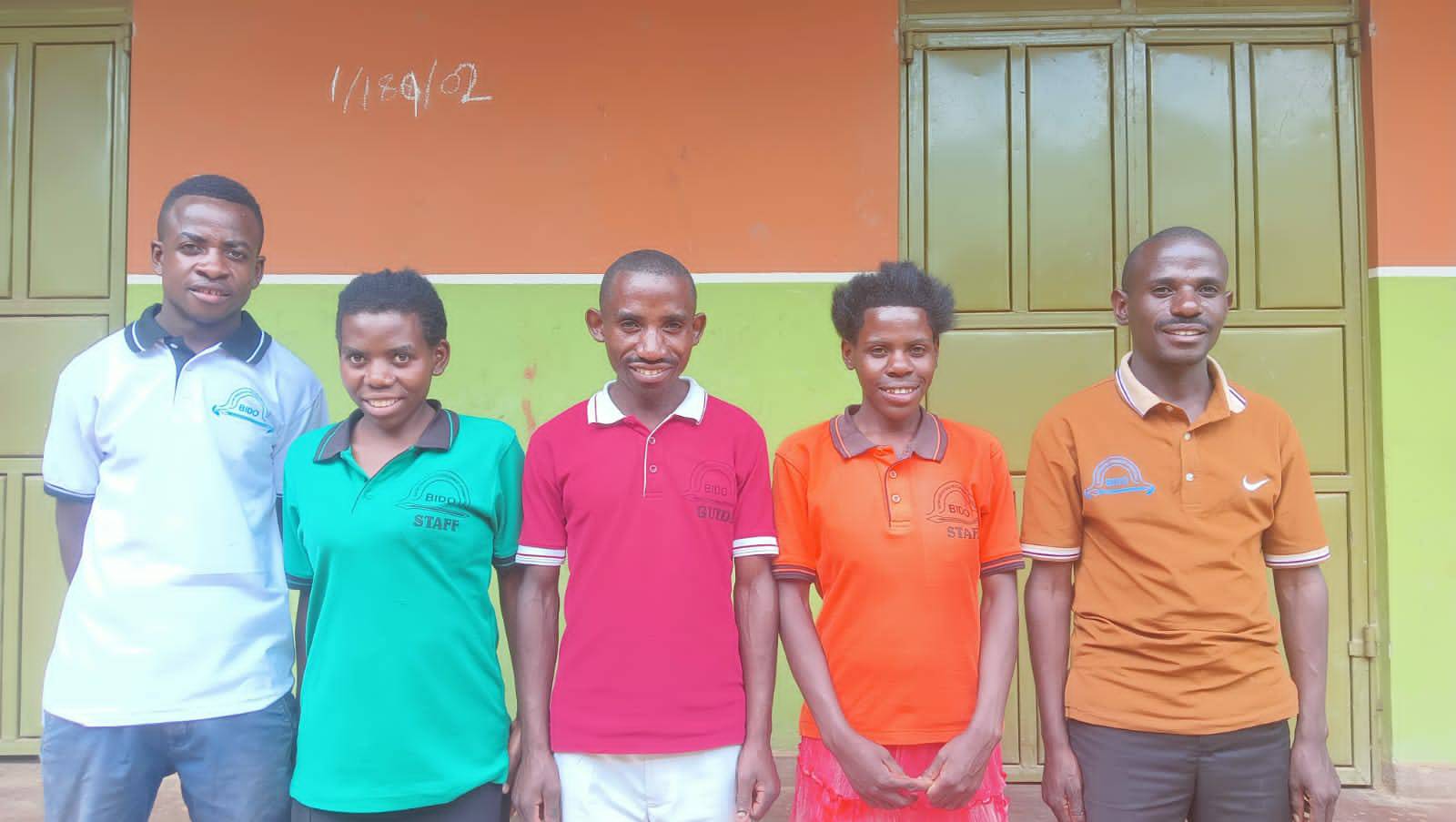Batwa Indigenous Development Organization
About Batwa Indigenous Development Organisation
The Batwa Indigenous Development Organisation emerged from the heart of Kisoro’s Batwa community in January 2015, beginning as a grassroots response to the pressing issue of school dropouts among Batwa youth. Under the leadership of executive director Alex Ahimbisibwe, together with treasurer Ameria Nyabutono, agriculture coordinator Felix Batuma and secretary Kate Bekunda, this community-driven initiative has evolved into an officially recognized and registered non-governmental organization.
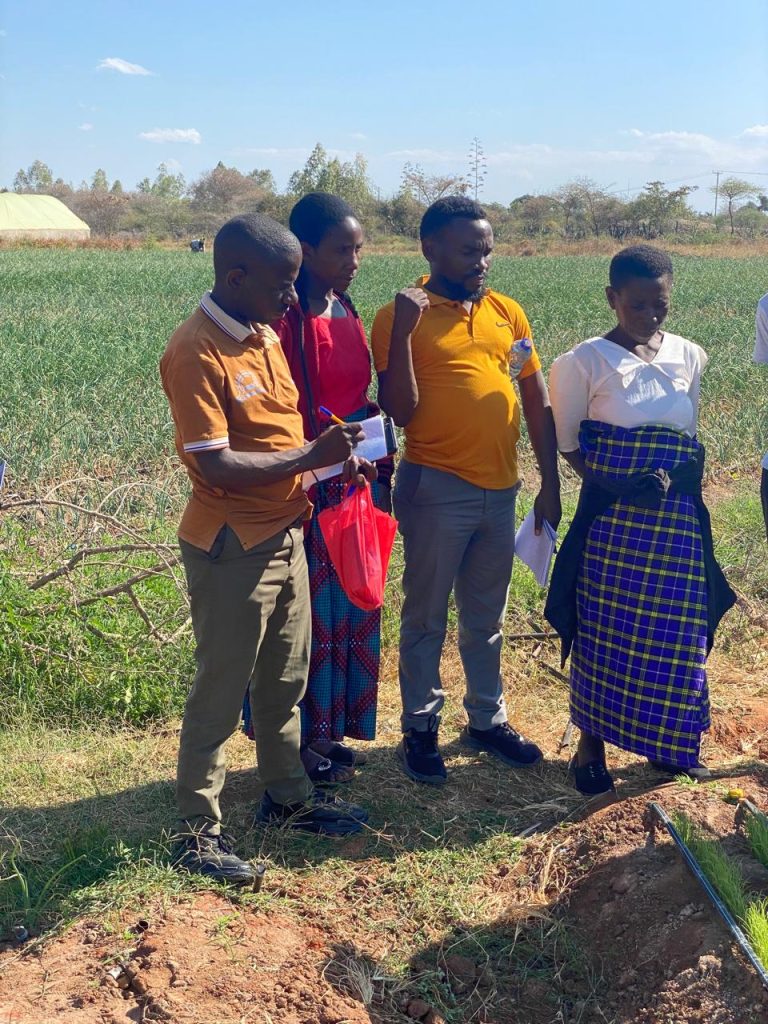
The Batwa are the original inhabitants of the equatorial forests in Africa’s Great Lakes region. For millennia, they thrived as hunter-gatherers, developing sophisticated knowledge of forest ecosystems and maintaining profound spiritual connections to their ancestral lands. However, since the 1960s, systematic displacement through encroachment, deforestation, and forced evictions for “conservation” projects has devastated their traditional way of life. Without compensation or viable alternatives, many Batwa now face extreme poverty, discrimination, limited access to basic services, and the threat of cultural extinction.
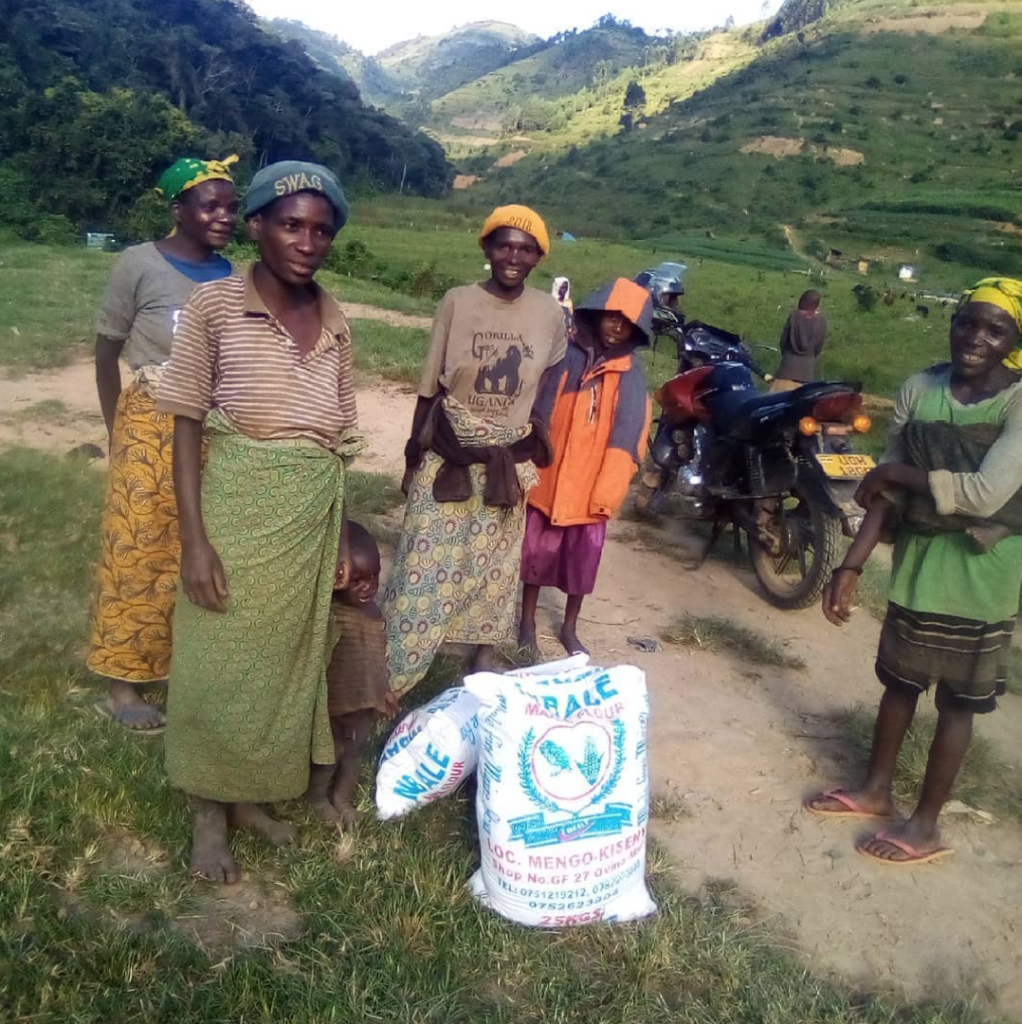
In six districts of western Uganda, the unemployment rate among Batwa stands at a staggering 97.3%. Their rights have been systematically violated in what has become a vicious cycle of poverty. Current educational statistics are equally alarming – only a handful of Batwa have completed higher education degrees, with virtually none employed in government positions due to entrenched discrimination and bureaucratic barriers that make it nearly impossible for minority Batwa to navigate these systems.
BIDO’s mission addresses these challenges through an integrated approach:
Land Rights: Advocating for secure access to land and sacred sites
Educational Advancement: Expanding opportunities for Batwa children and youth to complete education
Food Security: Training in agroecology, securing land and farming implements and seeds
Human Rights Advocacy: Challenging systemic discrimination and advocating for Indigenous rights
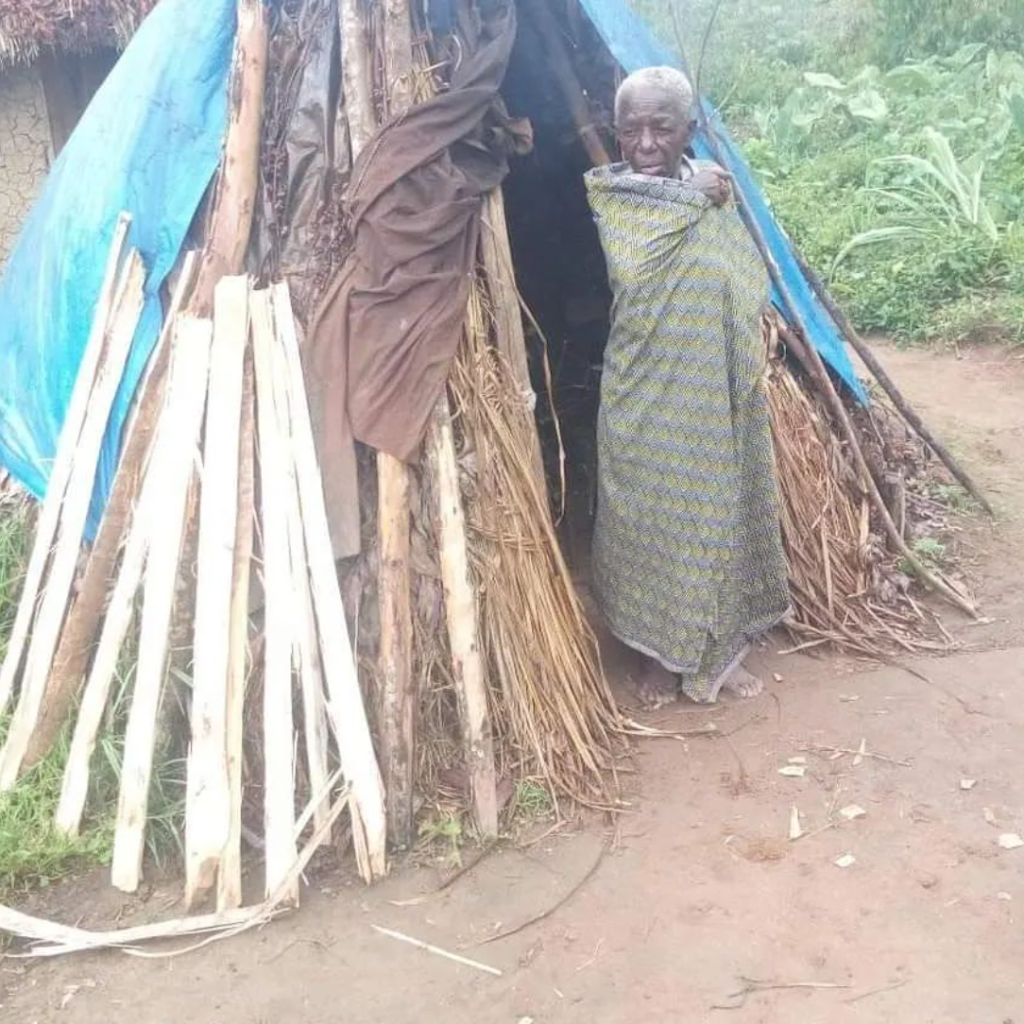
Our partnership
Our partnership
A Shared Commitment to Community-Led Change
Our partnership with BIDO is a journey of persistence. The relationship began when BIDO approached AWF during one of our open grant cycles. Although their determination and vision were immediately apparent, the formal support process faced initial obstacles because BIDO lacked the documented organizational history and official national registration required for international funding transfers due to institutional barriers they encountered within government systems.
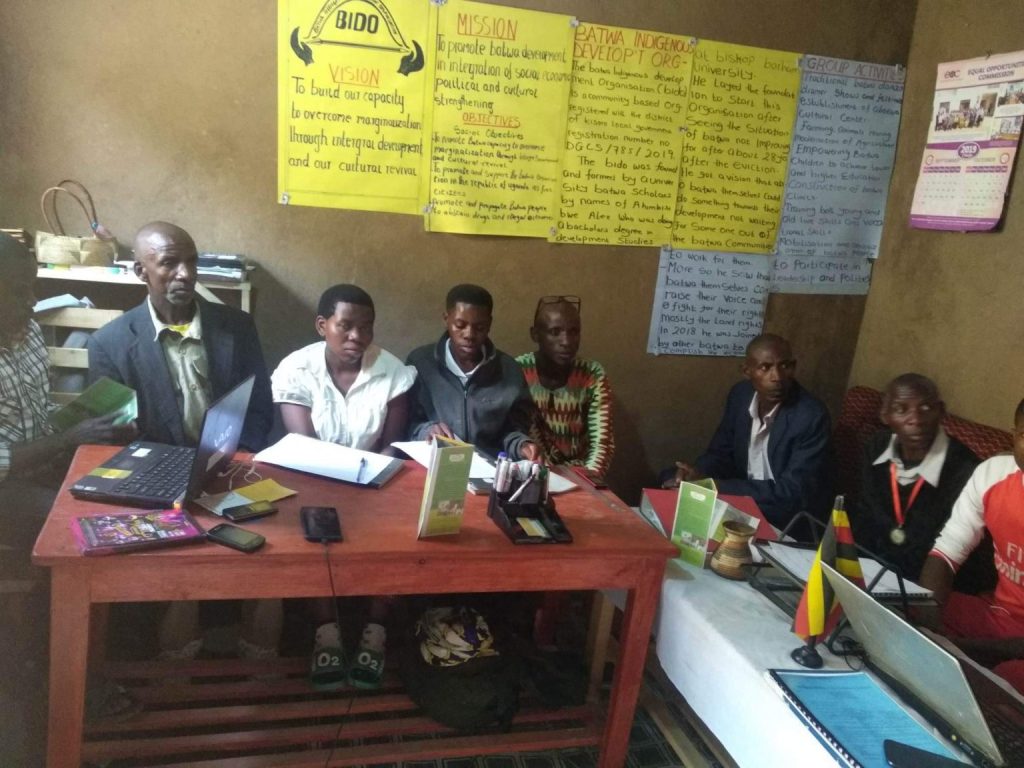
So we recognized the importance of first supporting BIDO’s organizational foundations. We began by providing guidance and practical assistance with their registration process—a challenging journey that continues as they navigate complex institutional barriers within government systems. This foundational work is essential because community-led initiatives can only flourish after these structural obstacles are overcome.
The persistent food insecurity affecting Batwa communities urgently required attention. However, both BIDO and community leaders expressed a desire not just for emergency food relief but for sustainable, self-determined food systems. This vision aligned perfectly with our commitment to supporting long lasting community-led solutions.
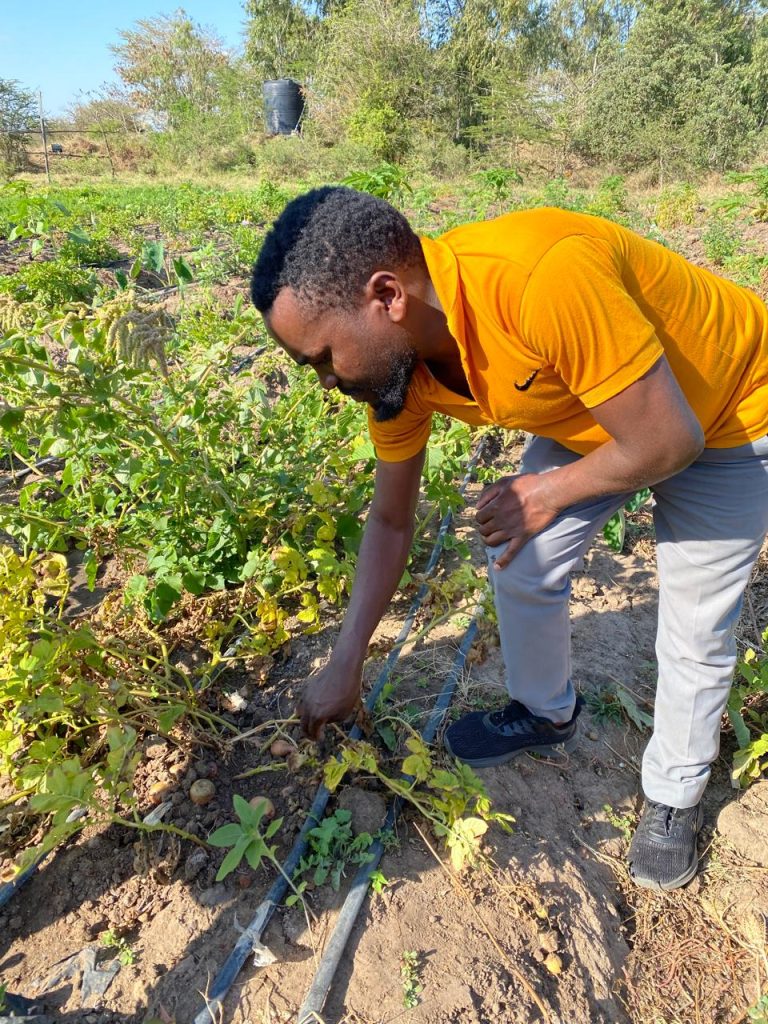
To help translate this vision into reality, we consulted with an expert in food sovereignty and arranged for a transformative learning exchange. Four representatives—two BIDO staff members and two influential community women—visited Kenya’s Yatta Farm, a remarkable success story where semi-arid land once dependent on food aid had been transformed into productive agricultural land.
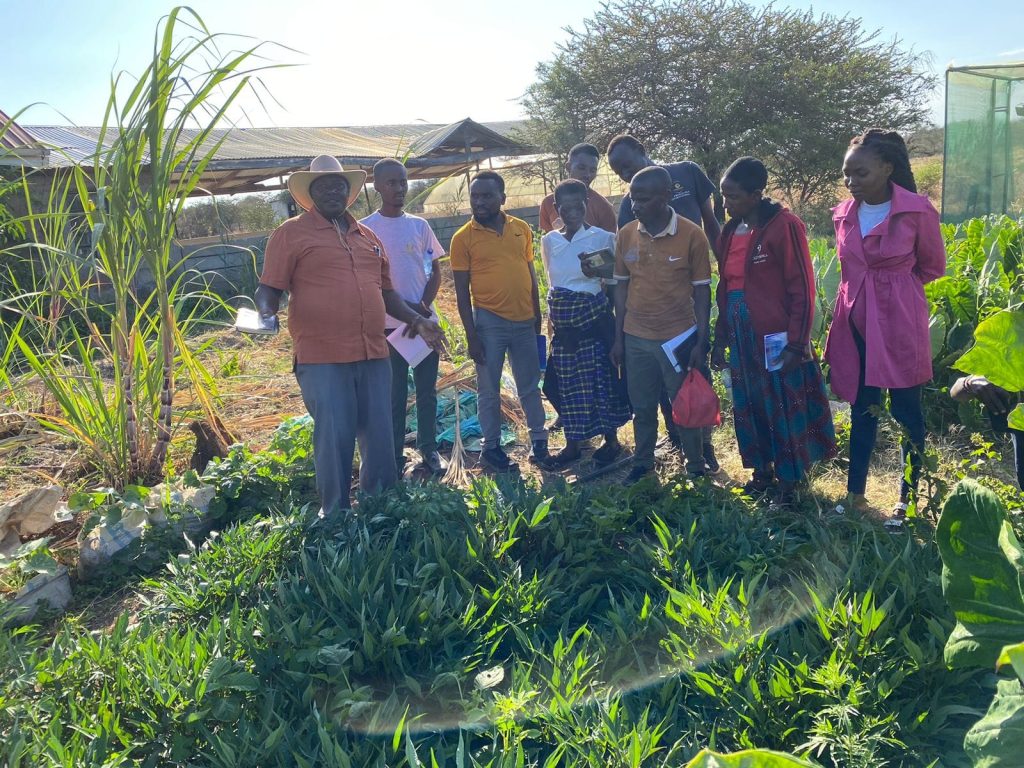
This visit proved to be a catalyst for change. Executive Director Alex Ahimbisibwe shared:
If this dry region can produce food year-round and we have water as a constant resource, we can absolutely do this. Our eyes are opening to all the available resources we have. I’m impressed by the idea of vertical gardens, which means food security is possible even with small pieces of land. Our team is buzzing with ideas and possibilities.
The enthusiasm generated by this exposure visit spread throughout the community when the representatives returned, creating a powerful momentum for implementation. With funding from another like-minded funder, BIDO initiated the Seeds of Sovereignty project in the Kashija settlement, acquiring their first livestock and beginning the construction of storage facilities.
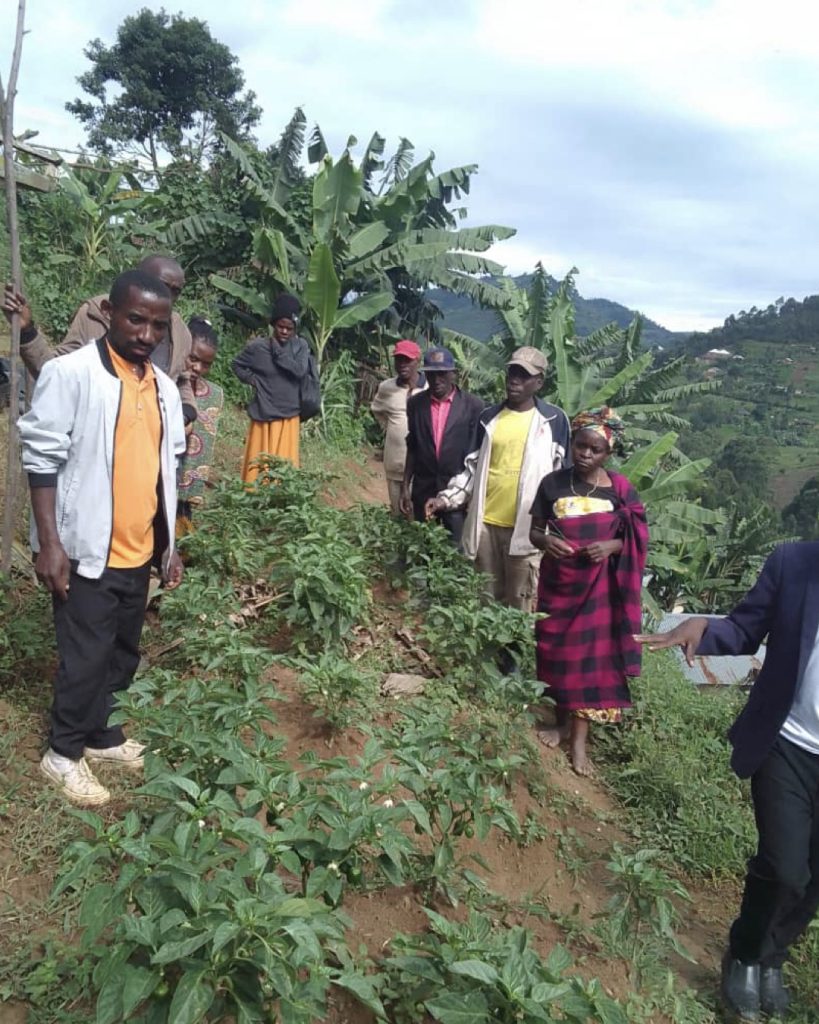
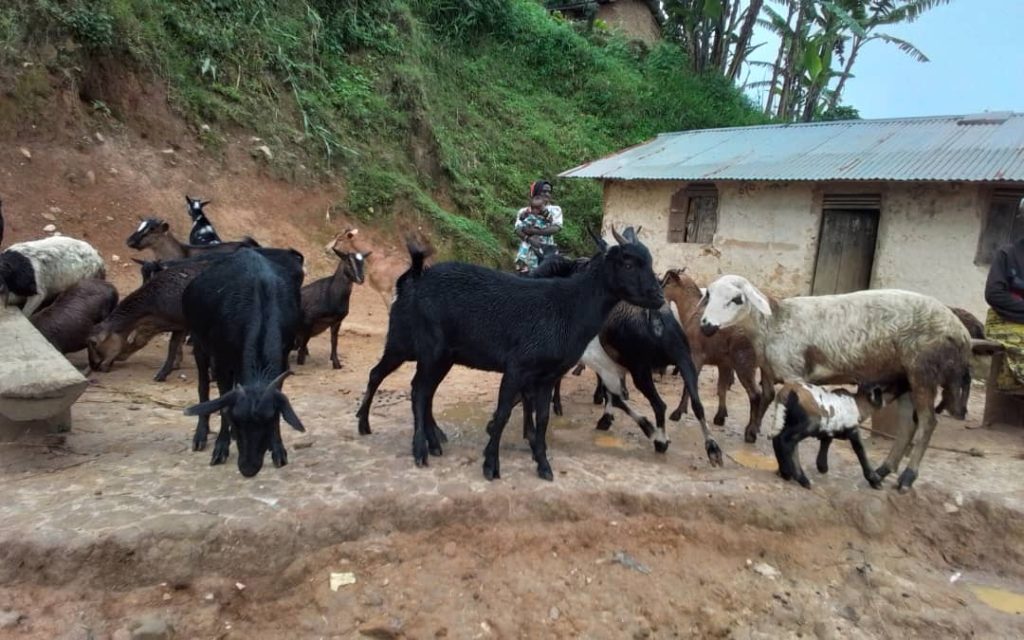
Building on this foundation, we moved to the second phase of the project—comprehensive agroecology training for the broader community. A Kenyan consultant from Yatta came to Kashija and provided hands-on training in techniques specifically adapted to Kisoro’s mountainous terrain and the community’s lack of land: vertical gardens to maximize limited space, zai pits for water conservation, raised beds for improved drainage, and local production of organic compost.
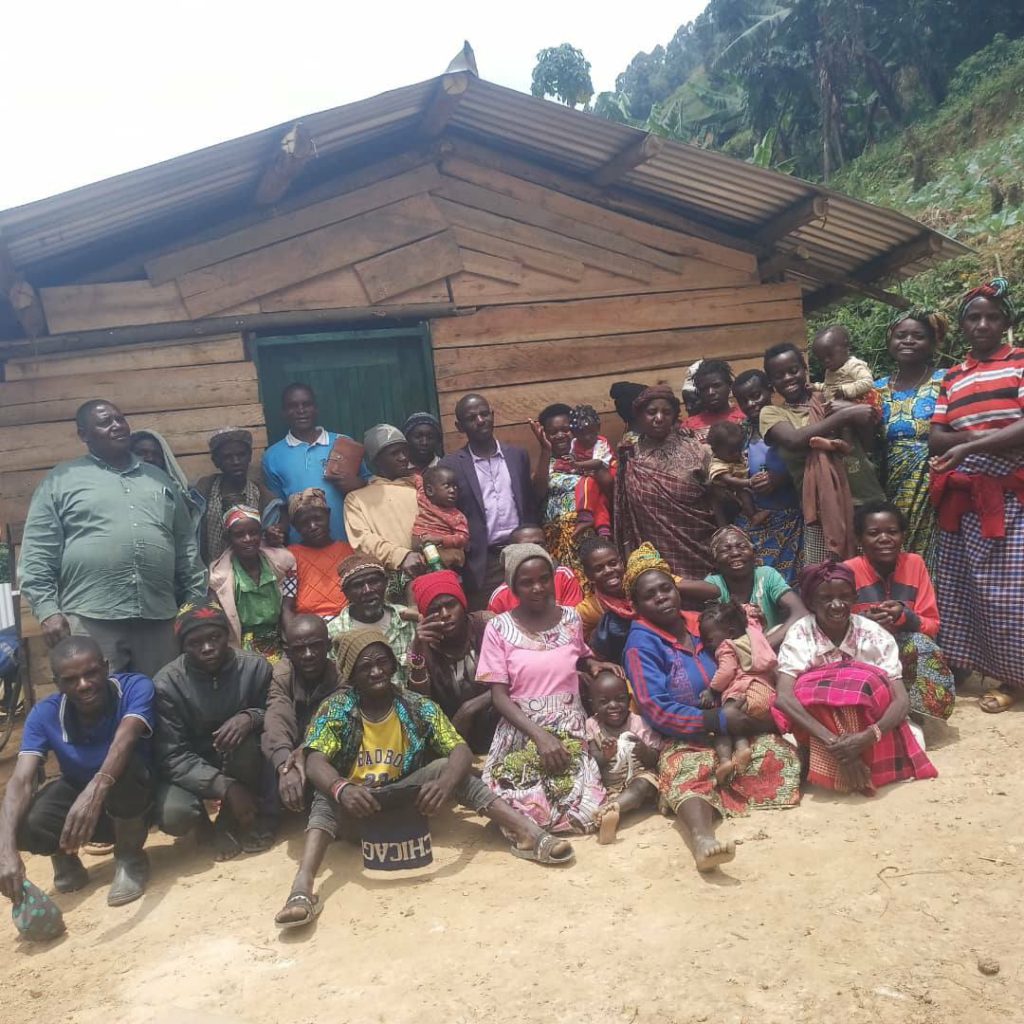
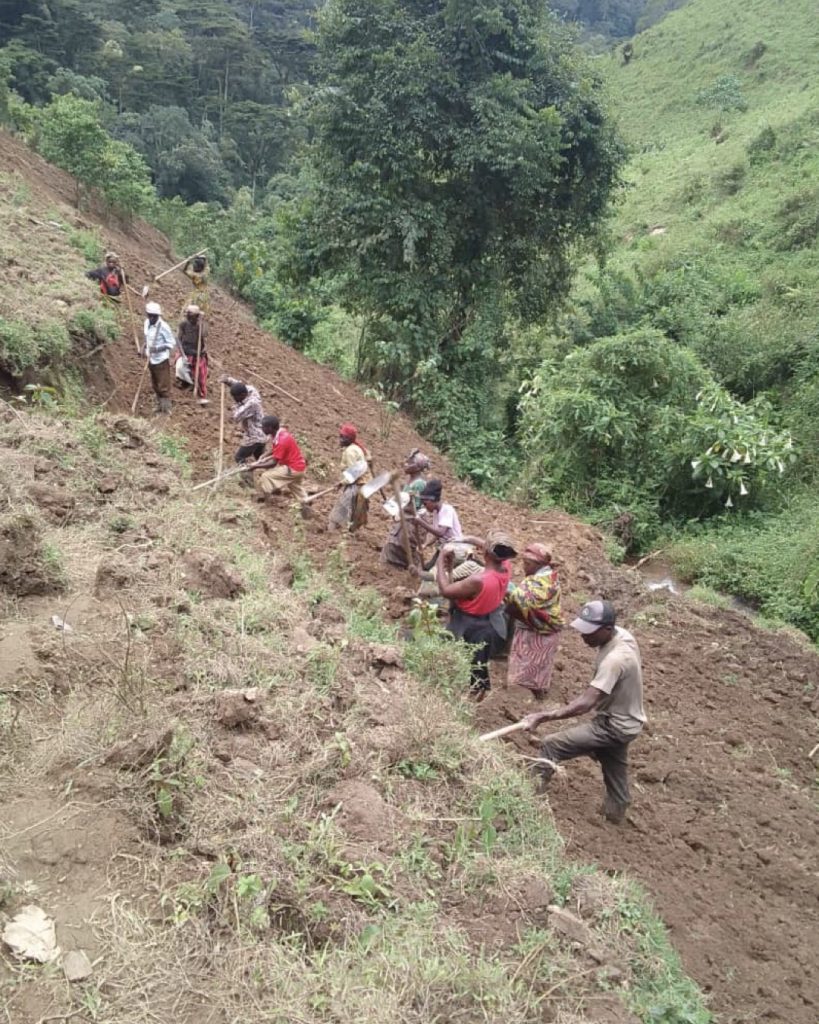
Empowering the Community Starts With the Younger Generation
Alongside food sovereignty, education remains a critical priority for BIDO, the community, and therefore, our partnership. BIDO identified the systemic barriers preventing Batwa children from accessing quality education: discrimination in schools, financial obstacles, and cultural disconnection from educational systems not designed with Indigenous perspectives in mind.
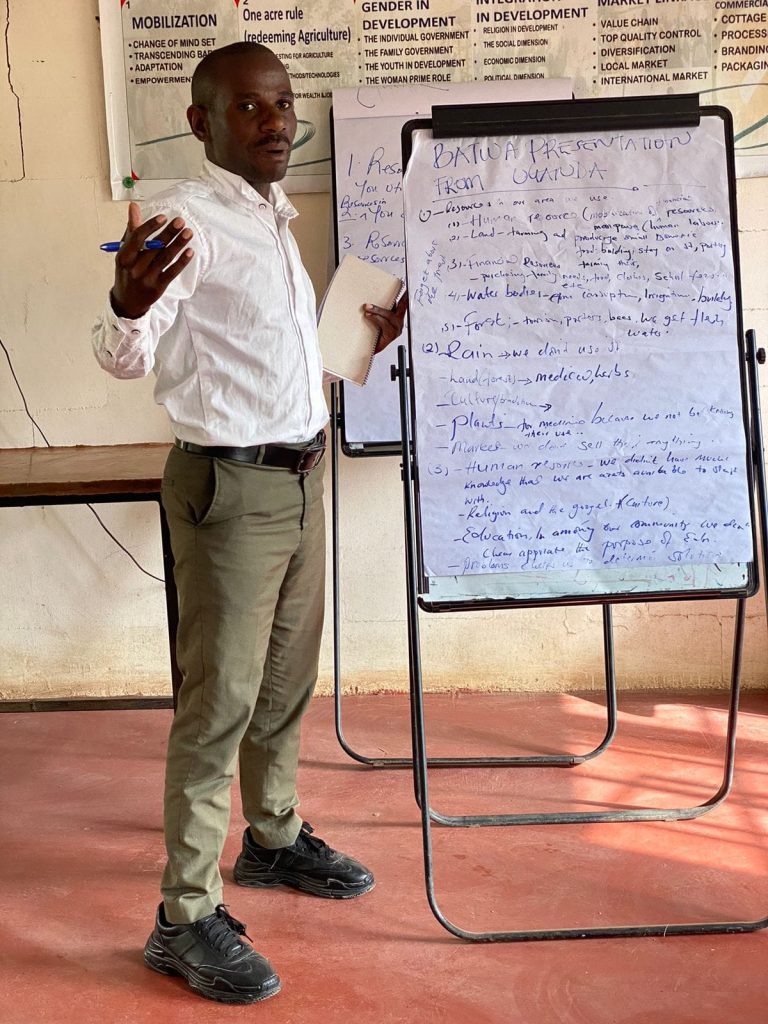
Our recently formalized educational support program addresses these challenges through a comprehensive approach that goes beyond simply paying school fees. The initiative focuses on ten Batwa children, providing full coverage for school fees, uniforms, learning materials, and personalized mentorship support.
The program’s design reflects a deep understanding that educational access requires addressing multiple interconnected barriers:
⊃ Student Support: Direct financial and material assistance combined with ongoing mentorship
⊃ Family Engagement: Working with parents to build understanding of education’s value and developing their capacity to support their children’s learning journeys
⊃ School Partnerships: Collaborating with educational institutions to address discrimination and create more inclusive environments
⊃ Community Involvement: Building broader support networks to sustain educational opportunities within businesses and industries within the broader community
This initiative represents our shared commitment to breaking the cycle of educational exclusion that has limited Batwa children’s opportunities and has impeded generations of learning to navigate external political and organizational systems.
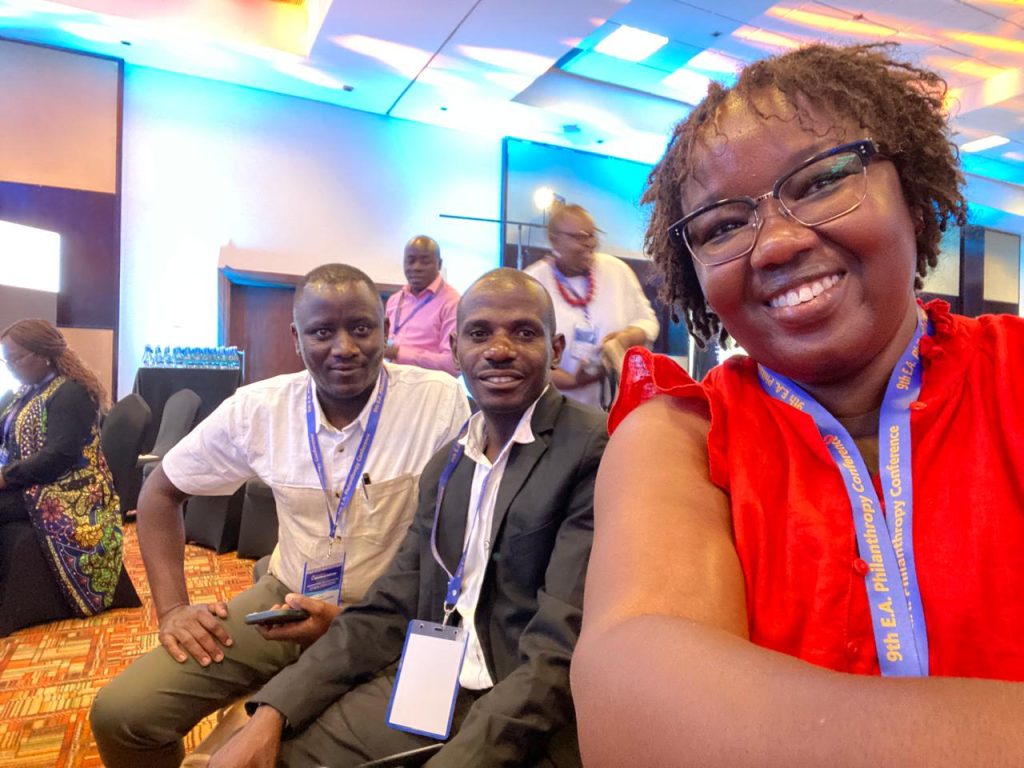
Building Networks for Community-Led Change
A crucial aspect of our partnership involves strengthening BIDO’s organizational capacity and expanding their network of support. We’ve provided practical assistance with registration processes, operational costs, and capacity building across multiple areas, from grant writing to appeals development.
In June 2025, we facilitated and supported BIDO’s attendance at the 9th East Africa Philanthropy Network Conference in Kigali from June 11-13. This gathering proved particularly critical given the current philanthropic landscape, where the Global North—especially the United States—is dramatically pulling back from international giving. As traditional funding streams dry up and political shifts reshape donor priorities, grassroots organizations across Africa face unprecedented defunding. The conference brought together philanthropists and civil society organizations to urgently address this crisis: how can East Africa reorganize its philanthropic systems, strengthen regional networks, and develop sustainable funding models that don’t depend on increasingly unreliable external donors?
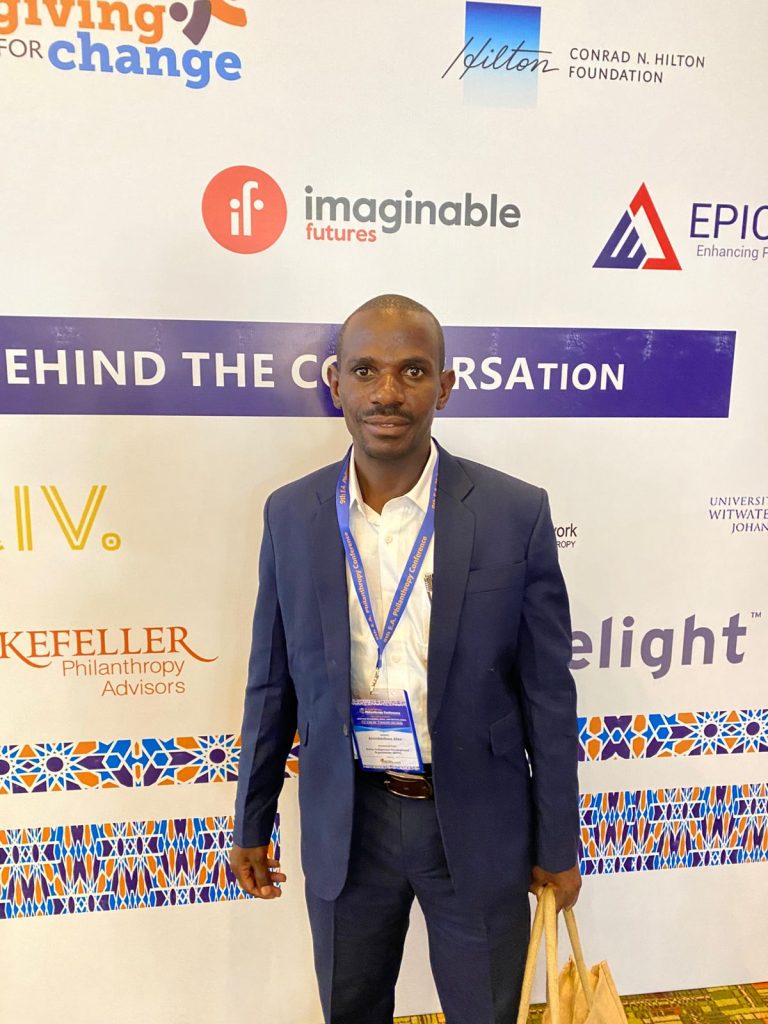
For BIDO, participating in these crucial conversations about building resilient, locally-rooted funding ecosystems represents not just networking, but survival strategy in a rapidly changing global landscape. This conference marked Alex’s first experience in an international forum with funders and institutional partners—a significant milestone for both personal and organizational development. Navigating these formal spaces requires specific skills: understanding donor language and priorities, presenting community needs within institutional frameworks, and positioning BIDO as an equal partner rather than a recipient. This exposure enables Alex to build confidence in representing Batwa interests on international platforms, develop fluency in the protocols and expectations of these environments, and establish direct relationships with potential allies. Most importantly, these experiences allow him to return to his community with enhanced capacity to advocate for Batwa rights and needs, bringing valuable insights about how global funding systems operate and how Indigenous organizations can position themselves more strategically within these networks.
IMPACT
Impact
BIDO’s work demonstrates how Indigenous-led initiatives can create transformative change when given appropriate and intentional support and resources.
Seeds of Sovereignty: Food Security Through Agroecology
The Seeds of Sovereignty project has implemented innovative agroecology strategies well-suited to the specific challenges facing Batwa communities in Kisoro, and these strategies are already showing promising results. The community has successfully harvested their first crop of Irish potatoes, with community members actively participating in planting, maintaining, and harvesting. This success provides both immediate nutritional benefits and proof that Batwa communities can achieve food sovereignty despite very limited resources.
Beyond technical agricultural improvements, the project has catalyzed important social changes:
⊃ Community Cohesion: Collective farming activities have strengthened social bonds and shared purpose
⊃ Knowledge Exchange: Traditional Batwa ecological knowledge has resurfaced
⊃ Youth Engagement: Young community members are learning practical skills and reconnecting with land and community
⊃ Women’s Leadership: Women play central roles in implementing and adapting agricultural techniques
The project has achieved these results despite significant challenges, including extremely limited land access, soil erosion on steep terrain, and the need to overcome a culture traditionally not connected to agricultural practices and shaped by years of dependency created through haphazard and inadequate external interventions.
Educational Pathways: Breaking Barriers to Learning
BIDO’s educational initiative is poised to create significant change for Batwa children who have historically faced nearly insurmountable barriers to education. The project is supporting 10 identified Batwa children. As the program develops over the school year, it will establish a foundation for long-term and more broad and inclusive educational advancement in the community.
Organizational Growth: Building Capacity for Sustained Impact
BIDO itself represents an impact story—growing from a small, community-based organization into an increasingly recognized advocate for Batwa rights and well-being. Their development includes:
⊃ Progress toward full legal registration despite institutional barriers
⊃ Successful management of agricultural and educational projects
⊃ Development of community mobilization skills
⊃ Growing recognition as a legitimate representative of Batwa interests
⊃ Expanding networks of partners and supporters
By integrating cultural preservation, sustainable livelihoods, and educational advancement, BIDO is adopting a holistic model for Indigenous-led development that honors Batwa heritage while addressing contemporary challenges.
Updates
Updates
News from the ground on projects, initiatives and collaborations.
View this post on Instagram
View this post on Instagram
View this post on Instagram
View this post on Instagram
SUPPORT
Support
We’re proud allies of the Batwa Indigenous Development Organisation. Their work represents not just individual projects but a comprehensive movement for Batwa self-determination that addresses immediate needs while building foundations for long-term sustainability. By combining food sovereignty initiatives with education and activism, BIDO is creating integrated solutions to the complex challenges their community faces.
Their work represents a model of Indigenous-led and determined development that deserves support:
> Visit BIDO’s website to learn more about their programs and initiatives
> Make a donation through their donation page to contribute to their transformative work
> Get in touch with the organization at batwazindigenous@yahoo.com to explore potential partnerships or volunteer opportunities
By supporting BIDO, you’re contributing to a Batwa-led movement that is addressing immediate challenges while building sustainable foundations for Batwa self-determination. Their work demonstrates that communities hold the wisdom and capacity to solve their own challenges when they have access to the resources and platforms to implement their visions.
— Connect with BIDO —
Batwa Indigenous Development Organization
About Batwa Indigenous Development Organisation
The Batwa Indigenous Development Organisation emerged from the heart of Kisoro’s Batwa community in January 2015, beginning as a grassroots response to the pressing issue of school dropouts among Batwa youth. Under the leadership of executive director Alex Ahimbisibwe, together with treasurer Ameria Nyabutono, agriculture coordinator Felix Batuma and secretary Kate Bekunda, this community-driven initiative has evolved into an officially recognized and registered non-governmental organization.

The Batwa are the original inhabitants of the equatorial forests in Africa’s Great Lakes region. For millennia, they thrived as hunter-gatherers, developing sophisticated knowledge of forest ecosystems and maintaining profound spiritual connections to their ancestral lands. However, since the 1960s, systematic displacement through encroachment, deforestation, and forced evictions for “conservation” projects has devastated their traditional way of life. Without compensation or viable alternatives, many Batwa now face extreme poverty, discrimination, limited access to basic services, and the threat of cultural extinction.

In six districts of western Uganda, the unemployment rate among Batwa stands at a staggering 97.3%. Their rights have been systematically violated in what has become a vicious cycle of poverty. Current educational statistics are equally alarming – only a handful of Batwa have completed higher education degrees, with virtually none employed in government positions due to entrenched discrimination and bureaucratic barriers that make it nearly impossible for minority Batwa to navigate these systems.
BIDO’s mission addresses these challenges through an integrated approach:
Land Rights: Advocating for secure access to land and sacred sites
Educational Advancement: Expanding opportunities for Batwa children and youth to complete education
Food Security: Training in agroecology, securing land and farming implements and seeds
Human Rights Advocacy: Challenging systemic discrimination and advocating for Indigenous rights

Our partnership
Our partnership
A Shared Commitment to Community-Led Change
Our partnership with BIDO is a journey of persistence. The relationship began when BIDO approached AWF during one of our open grant cycles. Although their determination and vision were immediately apparent, the formal support process faced initial obstacles because BIDO lacked the documented organizational history and official national registration required for international funding transfers due to institutional barriers they encountered within government systems.

So we recognized the importance of first supporting BIDO’s organizational foundations. We began by providing guidance and practical assistance with their registration process—a challenging journey that continues as they navigate complex institutional barriers within government systems. This foundational work is essential because community-led initiatives can only flourish after these structural obstacles are overcome.
The persistent food insecurity affecting Batwa communities urgently required attention. However, both BIDO and community leaders expressed a desire not just for emergency food relief but for sustainable, self-determined food systems. This vision aligned perfectly with our commitment to supporting long lasting community-led solutions.

To help translate this vision into reality, we consulted with an expert in food sovereignty and arranged for a transformative learning exchange. Four representatives—two BIDO staff members and two influential community women—visited Kenya’s Yatta Farm, a remarkable success story where semi-arid land once dependent on food aid had been transformed into productive agricultural land.

This visit proved to be a catalyst for change. Executive Director Alex Ahimbisibwe shared:
If this dry region can produce food year-round and we have water as a constant resource, we can absolutely do this. Our eyes are opening to all the available resources we have. I’m impressed by the idea of vertical gardens, which means food security is possible even with small pieces of land. Our team is buzzing with ideas and possibilities.
The enthusiasm generated by this exposure visit spread throughout the community when the representatives returned, creating a powerful momentum for implementation. With funding from another like-minded funder, BIDO initiated the Seeds of Sovereignty project in the Kashija settlement, acquiring their first livestock and beginning the construction of storage facilities.


Building on this foundation, we moved to the second phase of the project—comprehensive agroecology training for the broader community. A Kenyan consultant from Yatta came to Kashija and provided hands-on training in techniques specifically adapted to Kisoro’s mountainous terrain and the community’s lack of land: vertical gardens to maximize limited space, zai pits for water conservation, raised beds for improved drainage, and local production of organic compost.


Empowering the Community Starts With the Younger Generation
Alongside food sovereignty, education remains a critical priority for BIDO, the community, and therefore, our partnership. BIDO identified the systemic barriers preventing Batwa children from accessing quality education: discrimination in schools, financial obstacles, and cultural disconnection from educational systems not designed with Indigenous perspectives in mind.

Our recently formalized educational support program addresses these challenges through a comprehensive approach that goes beyond simply paying school fees. The initiative focuses on ten Batwa children, providing full coverage for school fees, uniforms, learning materials, and personalized mentorship support.
The program’s design reflects a deep understanding that educational access requires addressing multiple interconnected barriers:
⊃ Student Support: Direct financial and material assistance combined with ongoing mentorship
⊃ Family Engagement: Working with parents to build understanding of education’s value and developing their capacity to support their children’s learning journeys
⊃ School Partnerships: Collaborating with educational institutions to address discrimination and create more inclusive environments
⊃ Community Involvement: Building broader support networks to sustain educational opportunities within businesses and industries within the broader community
This initiative represents our shared commitment to breaking the cycle of educational exclusion that has limited Batwa children’s opportunities and has impeded generations of learning to navigate external political and organizational systems.

Building Networks for Community-Led Change
A crucial aspect of our partnership involves strengthening BIDO’s organizational capacity and expanding their network of support. We’ve provided practical assistance with registration processes, operational costs, and capacity building across multiple areas, from grant writing to appeals development.
In June 2025, we facilitated and supported BIDO’s attendance at the 9th East Africa Philanthropy Network Conference in Kigali from June 11-13. This gathering proved particularly critical given the current philanthropic landscape, where the Global North—especially the United States—is dramatically pulling back from international giving. As traditional funding streams dry up and political shifts reshape donor priorities, grassroots organizations across Africa face unprecedented defunding. The conference brought together philanthropists and civil society organizations to urgently address this crisis: how can East Africa reorganize its philanthropic systems, strengthen regional networks, and develop sustainable funding models that don’t depend on increasingly unreliable external donors?

For BIDO, participating in these crucial conversations about building resilient, locally-rooted funding ecosystems represents not just networking, but survival strategy in a rapidly changing global landscape. This conference marked Alex’s first experience in an international forum with funders and institutional partners—a significant milestone for both personal and organizational development. Navigating these formal spaces requires specific skills: understanding donor language and priorities, presenting community needs within institutional frameworks, and positioning BIDO as an equal partner rather than a recipient. This exposure enables Alex to build confidence in representing Batwa interests on international platforms, develop fluency in the protocols and expectations of these environments, and establish direct relationships with potential allies. Most importantly, these experiences allow him to return to his community with enhanced capacity to advocate for Batwa rights and needs, bringing valuable insights about how global funding systems operate and how Indigenous organizations can position themselves more strategically within these networks.
IMPACT
Impact
BIDO’s work demonstrates how Indigenous-led initiatives can create transformative change when given appropriate and intentional support and resources.
Seeds of Sovereignty: Food Security Through Agroecology
The Seeds of Sovereignty project has implemented innovative agroecology strategies well-suited to the specific challenges facing Batwa communities in Kisoro, and these strategies are already showing promising results. The community has successfully harvested their first crop of Irish potatoes, with community members actively participating in planting, maintaining, and harvesting. This success provides both immediate nutritional benefits and proof that Batwa communities can achieve food sovereignty despite very limited resources.
Beyond technical agricultural improvements, the project has catalyzed important social changes:
⊃ Community Cohesion: Collective farming activities have strengthened social bonds and shared purpose
⊃ Knowledge Exchange: Traditional Batwa ecological knowledge has resurfaced
⊃ Youth Engagement: Young community members are learning practical skills and reconnecting with land and community
⊃ Women’s Leadership: Women play central roles in implementing and adapting agricultural techniques
The project has achieved these results despite significant challenges, including extremely limited land access, soil erosion on steep terrain, and the need to overcome a culture traditionally not connected to agricultural practices and shaped by years of dependency created through haphazard and inadequate external interventions.
Educational Pathways: Breaking Barriers to Learning
BIDO’s educational initiative is poised to create significant change for Batwa children who have historically faced nearly insurmountable barriers to education. The project is supporting 10 identified Batwa children. As the program develops over the school year, it will establish a foundation for long-term and more broad and inclusive educational advancement in the community.
Organizational Growth: Building Capacity for Sustained Impact
BIDO itself represents an impact story—growing from a small, community-based organization into an increasingly recognized advocate for Batwa rights and well-being. Their development includes:
⊃ Progress toward full legal registration despite institutional barriers
⊃ Successful management of agricultural and educational projects
⊃ Development of community mobilization skills
⊃ Growing recognition as a legitimate representative of Batwa interests
⊃ Expanding networks of partners and supporters
By integrating cultural preservation, sustainable livelihoods, and educational advancement, BIDO is adopting a holistic model for Indigenous-led development that honors Batwa heritage while addressing contemporary challenges.
Updates
Updates
News from the ground on projects, initiatives and collaborations.
View this post on Instagram
View this post on Instagram
View this post on Instagram
View this post on Instagram
SUPPORT
Support
We’re proud allies of the Batwa Indigenous Development Organisation. Their work represents not just individual projects but a comprehensive movement for Batwa self-determination that addresses immediate needs while building foundations for long-term sustainability. By combining food sovereignty initiatives with education and activism, BIDO is creating integrated solutions to the complex challenges their community faces.
Their work represents a model of Indigenous-led and determined development that deserves support:
> Visit BIDO’s website to learn more about their programs and initiatives
> Make a donation through their donation page to contribute to their transformative work
> Get in touch with the organization at batwazindigenous@yahoo.com to explore potential partnerships or volunteer opportunities
By supporting BIDO, you’re contributing to a Batwa-led movement that is addressing immediate challenges while building sustainable foundations for Batwa self-determination. Their work demonstrates that communities hold the wisdom and capacity to solve their own challenges when they have access to the resources and platforms to implement their visions.
— Connect with BIDO —


